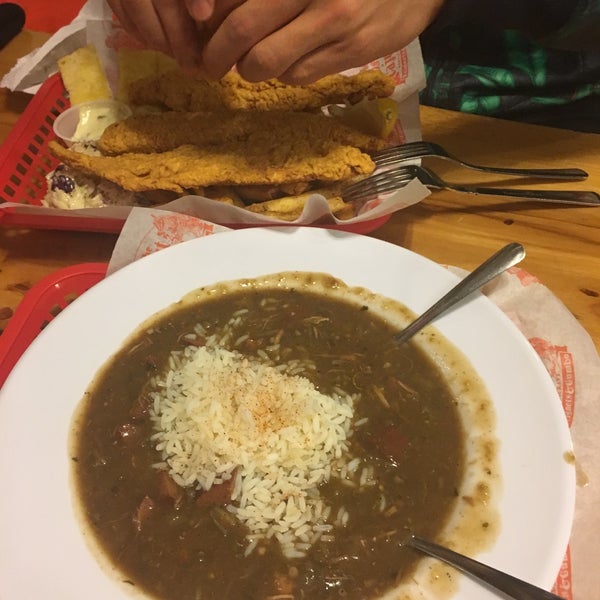
Technically, "Cajun" cuisine should properly fit under the umbrella of "Creole" cuisine, much like "Cajuns" themselves traditionally fit under the "Creole" umbrella. Residents of Acadiana-a historically isolated and rural region-do not typically make gumbo with tomatoes, regardless of ancestry or self-proclaimed identity, whereas urban New Orleanians do. A typical example is cuisine: Many claim that "Cajun" gumbo does not include tomatoes whereas "Creole" gumbo does, but this distinction is better viewed as geographic rather than ethnic.

It is common to see various demographic differences assigned to the Cajun/Creole binary. Īfter the Americanization of the Cajun Country in the 1950s and the implementation of the American black/white dichotomy, the term "Cajun" became synonymous with "white French Louisianian", due in part to CODOFIL's decision to promote Louisiana's link to Acadia in the "Cajun Renaissance", which began in the 1960s. Furthermore, it is also common for people in parishes such as Evangeline and Avoyelles to identify as Cajuns despite those parishes’ receiving few Acadian migrants in the wake of Le Grand Dérangement. For example, surnames like Guillory, Verret, Fontenot, LaFleur, Romero, Schexnaydre and McGee are commonly held to be Cajun names despite their original bearers' not being of Acadian extraction (with the names Romero, Schexnaydre and McGee being Spanish, German and Irish respectively). The above assertion is supported by numerous instances today of persons with non-Acadian surnames identifying as Cajuns. The term Cajun thus became a socioeconomic classification for the multicultural amalgam of several culturally and linguistically distinct groups. Hence poor Creoles of the bayou and prairie regions came to be permanently identified as Cajun. Their classification within the imposed black/white dichotomy did impact them economically when they dealt with Anglo-Americans it was during this time that "Cajun" began to eclipse "Creole" as the default French Louisianian term.Ĭarl Brasseaux notes in Acadian to Cajun, Transformation of a People, that:Ĭajun was used by Anglos to refer to all persons of French descent and low economic standing, regardless of their ethnic affiliation. Anglo-Americans (who adhered to a strict black/white dichotomy) struggled with the concept of a culturo-linguistic identity not based in race, and they identified the term "Creole" with mixed racial origins-a taboo and socially undesirable association for white Creoles due to the implementation of racial segregation & Jim Crow laws at the turn of the 19th century. In the twentieth century, the word "Creole" became the subject of much debate. The term Creole, on the other hand, increasingly came to designate urban Creoles from New Orleans or Mobile, Alabama, often from the middle class ( bourgeoisie) or the aristocracy ( grands habitants). After the American Civil War, bourgeois Louisiana Creoles increasingly used Cajun as the designation for Creoles from the Cajun Country or Creoles from the lower class, replacing the term petits habitants (Creole peasants). The American English "Cajun" is derived from Acadian French Cadien. Etymology and historical usage of the term Acadiana is heavily associated with them. Since their establishment in Louisiana, the Cajuns have become famous for their French dialect, Louisiana French, and have developed a vibrant culture including folkways, music, and cuisine.
#Floola cajun plus
The Acadia region to which many modern Cajuns trace their origin consisted largely of what are now Nova Scotia, New Brunswick, Prince Edward Island plus parts of eastern Quebec and northern Maine. While Lower Louisiana had been settled by French colonists since the late 17th century, many Cajuns trace their roots to the influx of Acadian settlers after the Great Expulsion from their homeland during the French and British hostilities prior to the French and Indian War (1756 to 1763). Cajuns make up a significant portion of south Louisiana's population and have had an enormous impact on the state's culture.

Although the terms Cajun and Creole today are often portrayed as separate identities, Louisianians of Acadian descent have historically been known as Creoles.

While Cajuns are usually described as the descendants of the Acadian exiles who went to Louisiana over the course of Le Grand Dérangement, Louisianians frequently use Cajun as a broad cultural term (particularly when referencing Acadiana) without necessitating descent from the deported Acadians. The Cajuns ( / ˈ k eɪ dʒ ən z/ French: les Cadjins or les Cadiens ), also known as Louisiana Acadians (French: les Acadiens), are a Louisiana French ethnicity mainly found in the U.S. Basques) can be considered as separate (ethnically) or French migration (by nationality).


 0 kommentar(er)
0 kommentar(er)
